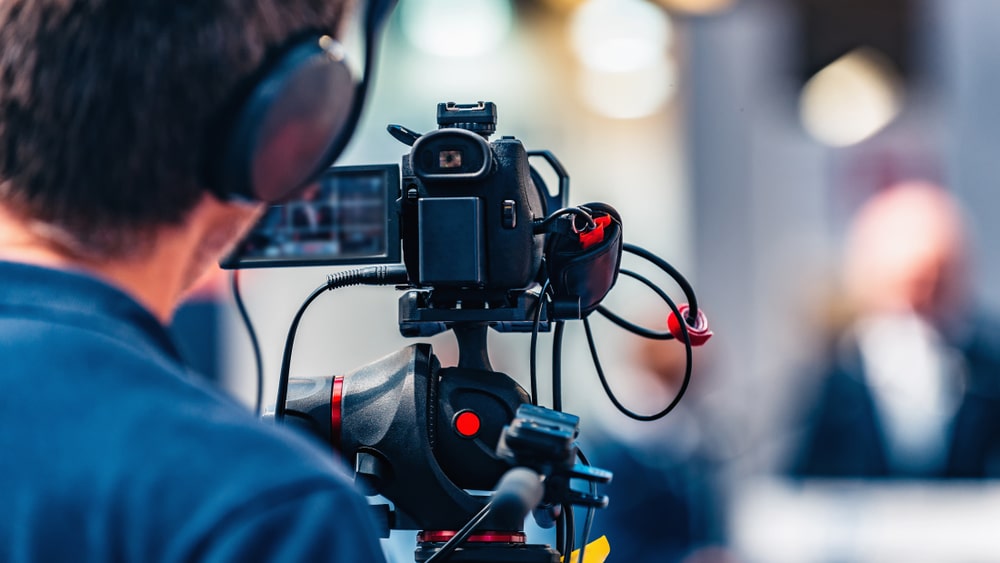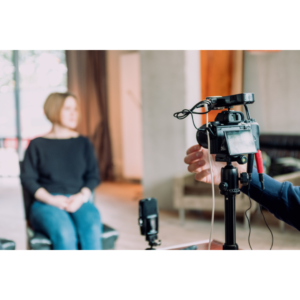The Role of Legal Videography in Depositions and Trials
Lawful videography has become a necessary device in both depositions and trials, offering a multifaceted approach to recording witness statements. By capturing not only the talked word however also the nuances of non-verbal interaction, this medium boosts the reliability of testaments and maintains vital evidence for future process (legal videography). As attorneys increasingly identify its value, it motivates a much deeper assessment of exactly how these visual documents can influence juror perceptions and test results. What implications might these growths hold for the future of legal technique?

Importance of Legal Videography
Lawful videography plays a critical duty in the documentation and presentation of depositions and trials. This customized area combines technical skills with legal knowledge to develop a trusted record of procedures that can dramatically influence situation end results. The appearance of lawful videography boosts the understanding of witness testimony, allowing jurors and judges to observe not only the spoken words yet additionally the disposition, feelings, and body movement of the witnesses.
In enhancement, lawful videography gives an unbiased account of occasions, decreasing the possibility for misinterpretation that can happen with composed transcripts alone. This visual documentation functions as an important device during test discussions, assisting in a more clear and more convincing narrative for both complainants and offenders. In addition, the capability to replay video clip sections during court process makes it possible for lawful teams to stress vital points, reinforcing their debates properly.
The significance of lawful videography prolongs past the court; it additionally plays a crucial role in maintaining evidence for future reference, whether for charms or further lawsuit. Its combination right into the legal process is essential for ensuring a reasonable and exact representation of the truths, inevitably contributing to the quest of justice.

Process of Legal Videography
While recording the subtleties of depositions and trials, the process of legal videography includes numerous critical steps that make sure top notch, exact recordings. An expert legal videographer prepares by examining the situation products and recognizing the details requirements of the deposition or trial. This preparation consists of acquainting themselves with the individuals and the context, which helps in recording pertinent details.
On the day of the recording, the videographer establishes the necessary equipment, which generally includes high-definition cams, microphones, and correct lights. Making certain ideal angles and sound high quality is essential, as it directly impacts the effectiveness of the recording. The videographer communicates with lawyers and individuals to establish protocols, guaranteeing that everyone comprehends the recording process.
During the deposition or test, the videographer meticulously records the process, paying very close attention to both verbal and non-verbal cues. This includes catching the temperament and responses of witnesses and lawyers. After the session concludes, the videographer might modify the video footage for clarity and compliance with legal criteria, creating a final item that precisely reflects the process for future recommendation and use in legal contexts.
Advantages in Depositions
The unification of videography in depositions provides numerous benefits that enhance the total process of gathering proof. One main advantage is the capability to capture witness testaments with visual and acoustic fidelity, providing an extra accurate depiction of the witness's temperament, tone, and body movement. This multidimensional approach enables attorneys and courts to assess reliability better see than conventional written transcripts alone.
In addition, videographed depositions work as an effective device for protecting testament. Ought to a witness come to be unavailable for trial, their tape-recorded deposition can be played in court, making certain that their evidence stays obtainable and pertinent. This element significantly minimizes the threat of losing critical information that might influence instance outcomes.

Finally, videography improves the general professionalism of the deposition procedure, instilling self-confidence in customers pertaining to the thoroughness of their lawful depiction (legal videography). By leveraging innovation, attorneys can significantly improve the performance of depositions
Effect On Tests
In lots of trials, the integration of videography can considerably influence the discussion of evidence and the court's assumption. Lawful videography captures witness testimonies and crucial evidence in a vibrant style, allowing jurors to engage with the material on multiple degrees. This visual component boosts the narration aspect of a test, supplying context and emotional vibration that typical text-based evidence might do not have.
In addition, video recordings can function as powerful devices for impeachment throughout cross-examination. When discrepancies emerge between a witness's previous declarations and their courtroom testament, video proof supplies an objective referral that can persuade jurors' opinions. This immediacy and clearness can bolster the trustworthiness of a party's story while at the same time undermining opposing debates.

Future Trends in Legal Videography
As we look towards the future of legal videography, a number of emerging fads promise to reshape its duty within the court room. One significant trend is the combination of expert system (AI) in video analysis and modifying. AI can enhance the process of determining essential moments in tape-recorded depositions, permitting lawyers to promptly access pertinent material, therefore boosting effectiveness in situation preparation.
Additionally, the rise of virtual fact (VR) and augmented fact (AR) modern technologies is anticipated to transform how jurors experience proof. legal videography. By submersing jurors in a simulated environment, these technologies can offer a more extensive understanding of complicated situations, leading to even more educated deliberations
In addition, the boosting demand for remote depositions, accelerated go now by the COVID-19 pandemic, will likely proceed. Legal videographers will require to adapt to brand-new software program and systems to guarantee top quality recordings in virtual setups.
Finally, the growing emphasis on information safety and security will require stricter methods for keeping and sharing video proof. As the legal landscape develops, lawful videographers need to stay abreast of link these fads to preserve their importance and efficiency in the judicial process.
Verdict
In recap, lawful videography offers an essential function in the judicial process, boosting the honesty of depositions and tests. As technology continues to develop, lawful videography is positioned to more transform its duty within the lawful landscape.